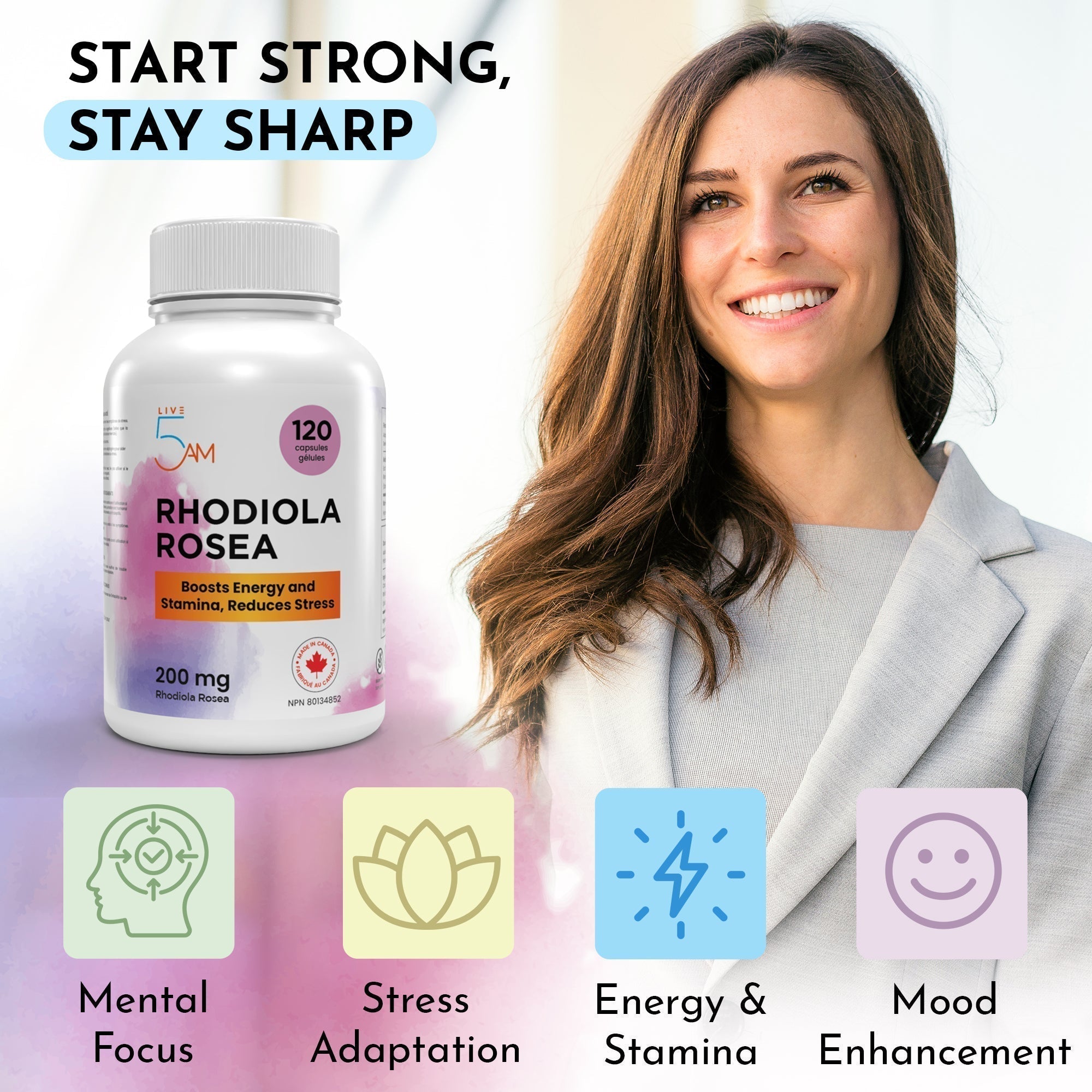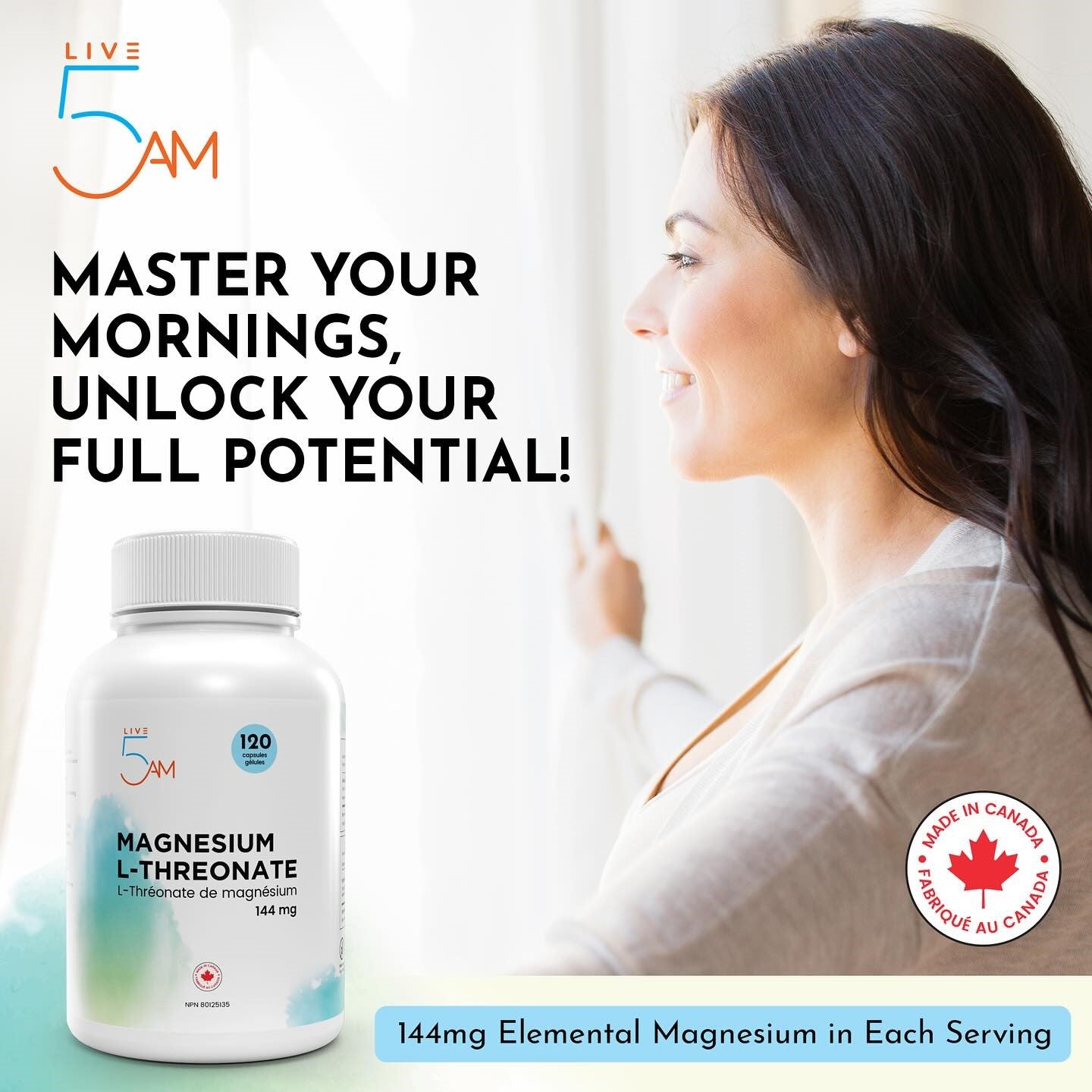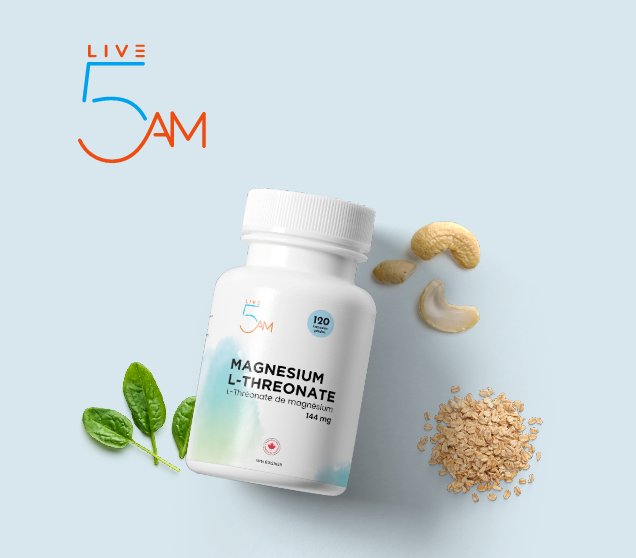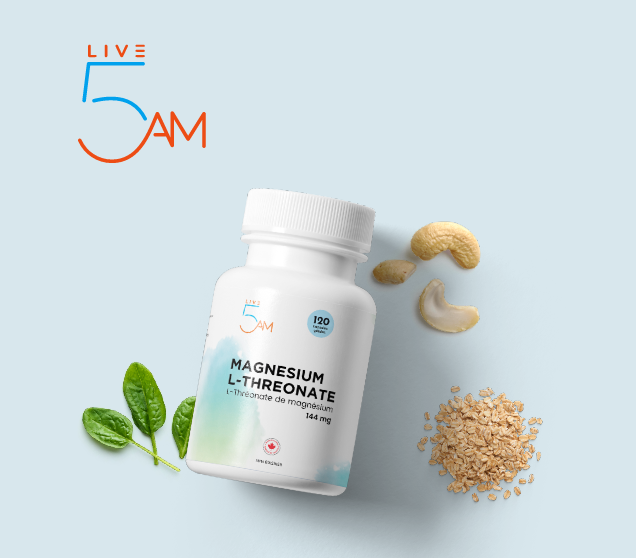From Our Digest

All Posts

The 48-Hour Cortisol Reset: Stop Storing Fat and Start Sleeping Deeply
The hidden connection between chronic stress, stubborn fat storage, and your worst night's sleep.
You are moving faster than ever, but feeling heavier. You’re trying to eat right, but your belly won't budge. And no matter how hard you push, deep, restorative sleep feels out of reach.
Most people blame diet or willpower. The truth is, the problem starts with one hormone, cortisol.
Cortisol is not the enemy. It's your body's survival switch. It’s supposed to surge in the morning to wake you up and spike briefly when a threat appears. But under the constant pressure of modern life, that switch gets stuck "on."
The Cortisol Trap: Why Stress Creates Stubborn Fat
When cortisol stays high, it completely overrides your healthy habits and changes your body’s metabolic programming. It's like turning on a faulty survival mechanism.
Here's the simple three-step process:
The Alarm: When stress hits (a deadline, a traffic jam), cortisol rushes out. Its job is to give you instant fuel to fight or run. Cortisol pulls sugar (glucose) into your bloodstream immediately, even if you don't need it.
The Clean-Up: Your body sees the unneeded surge of sugar. Your pancreas releases insulin, the body's main storage hormone to clean up the excess fuel. Since you didn't burn the sugar (you just sat at your desk), insulin has nowhere to put it but storage.
The Storage Signal: Insulin directs that unused energy to the most convenient, long-term locker: visceral fat around your middle.Chronic stress equals chronic storage. This is why you can’t lose that stubborn belly fat until you fix the hormonal signal first.
The 48-Hour Cortisol Reset: Your 5-Step Plan
1. The 10-Minute Dawn Protocol (Fix the Morning Spike)
Your goal is to make sure your cortisol peaks high and fast in the morning, then drops cleanly.
0-5 Minutes: Seek Bright Light- Step outside or stand near a window. Let daylight hit your eyes for at least five minutes (no phone, no sunglasses).
5-10 Minutes: Anchor Your BreathPractice a slow, deliberate breathing pattern (e.g., inhale for 4 seconds, hold for 1, exhale for 6 seconds).
Rhythm Reset: Bright light ensures your cortisol surge happens right when it should, preventing the rhythm from lagging and spilling into afternoon fatigue.
The Vagus Break: The 4:6 exhale triggers the Vagus Nerve, establishing a calm baseline before the chaos begins.
2. Stack Your Breakfast: Fat, Fiber, Protein (Stabilize Glucose)
You can't reset cortisol if your blood sugar is spiking wildly. This step prevents the metabolic component of the Cortisol Trap.
Your first meal must contain zero simple sugars and heavily feature this trinity:
Fat: Signals satiety and slows digestion.
Fiber: Slows the absorption of any carbohydrates present.
Protein: Provides stable fuel and prevents the rapid insulin surge.
Why This Works: A stable breakfast shuts down the fat storage signal because it avoids the quick glucose spike that forces insulin to act as a storage hormone.
3. The 5-Minute Post-Meal Move (Interrupt the Storage Signal)
This step interrupts the storage command immediately after eating.
Action: Immediately after your largest mealGentle Walk- 5 to 10 minutes
If you cannot leave your deskBodyweight Movements; perform 20 squats, 20 calf raises, or 100 marching-in-place steps.
The Glucose Sponge: Your active muscles pull sugar directly from the bloodstream for immediate fuel.
Bypassing Insulin: This effectively bypasses the heavy insulin command to package and store excess glucose as visceral fat.
4. The Vagus Nerve Ice Water Hack (Immediate Stress Interruption)
When you feel stress rising, your body spikes into Sympathetic Mode. This trick forces an instant physiological reset.
When to UseActionDurationDuring acute stressIce Water DrinkTake a large, slow gulp of ice-cold water.During sustained pressureCold Water SplashSplash ice-cold water on your face and behind your ears.
Vagus Activation: The temperature shock sends a powerful signal to the Vagus Nerve.
The Switch: This acts like an emergency brake, triggering the Parasympathetic System and communicating to your brain: "The threat is over."
5. The Nightly 300mg Magnesium Reset (Deep Sleep and Muscle Release)
To truly complete the 48-hour reset and start sleeping deeply, you must optimize your recovery window. Stress rapidly depletes your magnesium stores.
Action: 30 minutes before bed- Magnesium Supplement: Take highly absorbable magnesium. Best Forms Bisglycinate or L-Threonate; Choose forms known for their calming effects and superior nervous system absorption.
Cortisol Release: Magnesium helps physically lower evening cortisol, prepping the body for rest.
Slow-Wave Sleep: By promoting deep physical and mental calm, Magnesium significantly supports Slow-Wave Sleep (SWS), the essential repair phase.
The 48-Hour Promise:
By implementing these five steps today, you immediately break the metabolic cortisol loop.
Stop Storing Fat: You stabilize blood sugar, ending the constant biochemical signal to store visceral fat.
Start Sleeping Deeply: Your nervous system is calmed, allowing you to access the deep, essential recovery phases of sleep.
Implement these five steps today to begin your reset.
READ MORE


The Winter Energy Fix: How to "Activate" Your Vitamin D for All-Day Clarity
Two people. Same vitamin D. Same winter ritual. Only one feels the lift.
It’s 8:32 a.m. in December.
Alex pours a cup of coffee, pops a vitamin D capsule, and heads out the door.
Sophie does the same thing. Same dose. Same consistency. Same intention: a little extra light for the long, grey days.
By mid-afternoon, Alex is dragging, foggy mind, heavy limbs, subtle low mood creeping in. Sophie feels steady, alert, and energized enough for a short walk before dinner.
Two people. Same routine. Opposite outcomes.
Vitamin D Isn’t the Solo Player You Think It Is
The truth is, vitamin D absorption in winter depends on more than just the capsule.
Vitamin D → is the raw material. Magnesium → is the switch that activates it. (It acts as a crucial cofactor for the enzymes that metabolize D into its active form.) Fat → is the vehicle that delivers it where it’s needed.
In summer, this trio often aligns naturally: plenty of sunlight, magnesium-rich greens, balanced meals with healthy fats.
Winter Changes Everything
In December, environmental and lifestyle shifts can quietly reduce vitamin D effectiveness because they disrupt the cofactors:
Less sunlight → weaker circadian cues, slower metabolism signals.
Lower magnesium intake → stress and indoor diets reduce natural magnesium levels, meaning the "switch" needed for activation is less available.
Fewer healthy fats → heavier winter meals delay vitamin D absorption because there is no good vehicle for delivery.
Indoor, sedentary routines → slower gut motility.
Later nights and shorter days → shifted sleep patterns subtly affect energy.
Even with the same vitamin D supplement, these winter realities can make it feel like it has stopped working. The truth is: your body isn’t processing it the same way it did in summer.
Small Shifts That Make a Big Difference
You don’t need a bigger dose. You just need to support the system already in place:
Take vitamin D with a meal containing healthy fats like avocado, eggs, or nuts. (The vehicle)
Pair it with magnesium, especially at night if that’s already part of your routine. (The switch)
Consider omega-3s, which support vitamin D receptor sensitivity.
Prioritize consistency over exact timing; your body responds to regular cues, not perfect windows.
These simple adjustments help your winter vitamin D routine work effectively, using what your body already has. Stop chasing a bigger dose and start supporting the system. That's the 5 AM way to winter-proof your energy.
READ MORE


Your Brain Runs on More Than Thoughts: Why Minerals Matter for Mental Clarity
The Quiet Power Behind Your Thoughts
We often think clarity comes from mindset shifts, better planning, meditation and discipline. But the truth is, your thoughts run on chemistry. Every spark of focus, every decision, every creative leap begins with an electrical signal in your brain. And those signals only fire when the right minerals are in place.
Magnesium. Zinc. Iron. These aren’t just nutrition buzzwords; they’re the “switches” your neurons use to pass signals. Without them, the wiring slows. You don’t just feel tired, you feel unfocused, foggy, and strangely unmotivated, no matter how much sleep or coffee you get.
The Science Behind the Fog
- Magnesium supports over 300 biochemical reactions, many tied directly to stress and sleep. Chronic stress quietly burns through your reserves, leaving your nervous system more reactive and your recovery slower.
- Zinc is vital for neurotransmitters like dopamine. Even mild deficiencies can make focus scatter, while adequate intake helps steady attention.
- Iron is central to oxygen delivery. Low iron doesn’t just sap physical energy, it makes your brain cells feel starved.
Studies consistently show that small nutrient gaps add up. One paper in Nutrients (2020) linked magnesium deficiency with higher anxiety and disrupted sleep. Another, in Frontiers in Nutrition (2021), highlighted zinc’s role in attention and cognitive performance.
The point? Foggy thinking isn’t always mental. Sometimes, it’s mineral.
A Gentle Fall Reset:
- Eat closer to the earth. Pumpkin seeds, dark leafy greens, and lentils bring in zinc, magnesium, and iron without effort.
- Ritualize your calm. Swap one late coffee for lemon balm tea. Studies show it helps ease tension and support sleep quality, exactly the edge your brain needs to recharge.
- Stack with intention. Adaptogens like rhodiola help with stress resilience, while Himalayan shilajit fuels mitochondrial energy. Different tools, different pathways, each supporting your mind-body clarity.
Inflammation Reset & Autumn Detox
Try it today:
Help your body cool inflammation with what’s on your plate. Add an anti- inflammatory bowl to your week; think leafy greens, roasted salmon, avocado, and a drizzle of olive oil. Or blend a fall-inspired smoothie with berries, flaxseeds, and almond butter. Small food swaps like these work quietly in the background, keeping your system resilient as the seasons shift.
The Reminder
Your brain isn’t just an idea factory. It’s a living network, powered by chemistry that needs tending. This month, before you double down on willpower, ask yourself: is it clarity you’re missing or the minerals that make clarity possible?
READ MORE


The Day Nothing Happened and Everything Changed
In 1977, researchers began tracking a small group of adults, expecting to find dramatic events behind lasting mental wellbeing. What they discovered instead was quiet: the most resilient weren’t those with perfect lives; they were the ones who paused early, listened inwardly, and adjusted before stress hardened into burnout.
One participant, a teacher from Nova Scotia, recalled an unremarkable Thursday: “There wasn’t a crisis. I just felt brittle inside. I went for a walk and promised myself I’d stop waiting for breakdowns to take breaks. ” Decades later, her mental health outpaced peers who pushed through.
The lesson isn’t glamorous: stress rarely roars, it whispers. By the time it screams, your nervous system is already depleted. Late September can be like that too: familiar and quiet, but subtly shifting.
If you notice restless energy or frayed focus: Adaptogens like Rhodiola Rosea long studied for supporting stress resilience, can help your body adapt to tension rather than collapse under it. Some people find Himalayan shilajit supports steady energy on days when mental fatigue creeps in. Others swear by a brisk walk, breathwork, or writing down three thoughts to clear mental clutter.
A Little Story for Your Fall Evenings
Centuries ago, lemon balm was called “the elixir of life” by medieval healers who noticed how its bright, citrusy leaves could soothe restless minds. Even bees can’t resist its calming scent, they linger on lemon balm longer than on almost any other herb.
As the evenings draw in and the air sharpens, this humble herb slips perfectly into your fall ritual: a gentle steam rising from your mug, citrus- mint notes wrapping you in quiet.
Make it easy:
Choose an organic lemon balm tea, steep for 5–7 minutes, and add a drizzle of honey if you like. Keep a small jar on your counter or in your evening tea tray, so when the dark comes early, comfort is right within reach.
Whether you’re drawn to adaptogens like rhodiola for resilience or minerals like Himalayan shilajit for cellular energy, remember, these are not silver bullets, they’re reminders that tending to your inner landscape can be simple and human, a quiet tea, a breath of mountain air, a moment with yourself.
So tonight, before September slips away, pause. Notice the whispers. Adjust now not later. Sometimes the day nothing happens is the day everything changes.
“Stay curious. Stay grounded. Your energy isn’t borrowed; it’s built.”
READ MORE


The Power Booster That Isn’t in Your Multivitamin
When Your Energy Isn’t About “More Coffee"
The season is shifting. Your body feels it, even if you’re not reaching for a sweater yet. As daylight fades and mornings cool, your cells begin subtle adjustments: metabolism slows, cortisol patterns shift, and your mitochondria, the tiny power plants in your cells work harder to keep energy steady.
And here’s the bigger picture: your body already makes energy brilliantly. What drains it isn’t only a late night or missed coffee; it’s depleted soils, processed foods, and seasonal shifts quietly leaving your cells running on empty.
Your Autumn Energy Reset:
- Eat closer to the earth. Dark leafy greens, nuts, seeds, and unprocessed foods carry the minerals your mitochondria crave.
- Sync with the season. Cooler air? Perfect for brisk walks or forest hikes; movement boosts mitochondrial resilience.
- Recover like it matters. Magnesium, deep sleep, and breathwork steady your nervous system so energy isn’t wasted on stress.
The Mineral That Climbs Mountains Before It Reaches You
Centuries ago, high-altitude herders in the Himalayas noticed something strange: in summer, a tar-like resin seeped from warm mountain rocks. Animals that licked it grew stronger and recovered faster. Local healers began using this “mountain sweat” later called shilajit, as a tonic for vitality.
Modern research now shows why. Shilajit is rich in fulvic acid and trace minerals, micronutrients that today’s depleted soils often lack. These compounds act like a nutrient delivery system, helping cells absorb and use minerals more efficiently. In simple terms: it can help your mitochondria turn the food you eat into steady, usable energy right when seasonal shifts can leave them sluggish.
That’s why we’re introducing 5AM Himalayan Shilajit 500 mg.
Think of it as nature’s amplifier, not a replacement. Taken in the morning, it pairs perfectly with protein, fiber, and movement to keep energy steady all day.
“Stay curious. Stay grounded. Your energy isn’t borrowed; it’s built.”
READ MORE


Healthy Cells, Young Body, Radiant Skin
The Story Your Cells Are Telling
Every morning your body wakes up to a quiet truth: your cells decide how young you feel. Deep inside, energy factories called mitochondria keep you moving, glowing, thinking. But with age, they run low on fuel, not because you’ve done anything wrong, but because one molecule, NAD+, quietly declines year after year.
When NAD+ dips, repair slows. Skin doesn’t bounce back as easily. Energy feels borrowed instead of abundant. Even stress leaves a deeper mark.
Here’s the truth: your body already knows how to make NMN (Nicotinamide Mononucleotide), the direct building block of NAD+. It pulls it from both what you eat and how you live.
On your plate: edamame, broccoli, avocado, tomato, cucumber, mushrooms.
In your lifestyle: morning sunlight, deep sleep, daily movement, even light fasting.
These natural sparks keep your NAD+ system humming . But they only give trace amounts far too little to counter the steep drop that comes with time.
That’s where NMN supplementation completes the circle. Together, they’re two sides of the same story; nature’s design and science’s support .
Take it in the morning, when your NAD+ clock is highest.
Move your body; exercise and NMN speak the same cellular language.
Support it with basics: protein, fiber, magnesium, for a rhythm your body can rely on.
“Feed Your Cells, Fuel Your Glow”
This isn’t just a salad bowl, it’s a natural NMN boost on your plate, pairing crisp greens with powerhouse vegetables that help your body spark more NAD+.
NMN Glow Bowl
- 1 cup edamame (steamed, shelled)
- 1 avocado, sliced
- 1 small cucumber, diced
- 1 handful cherry tomatoes, halved
- 1 cup broccoli florets, lightly steamed
- ½ cup mushrooms, sautéed or raw
- 1 tbsp extra virgin olive oil
- 1 squeeze of lemon juice
Optional boosters (for better absorption & synergy):
- A sprinkle of hemp seeds (protein + fiber)
- A dash of magnesium-rich pumpkin seeds
- Fresh herbs like parsley or mint
How to make it:
1. Toss edamame, avocado, cucumber, tomatoes, broccoli, and mushrooms in a bowl.
2. Drizzle with olive oil + lemon juice.
3. Season with sea salt, pepper, and any boosters.
4. Mix gently and serve fresh.
Why it works: These whole foods give your body natural precursors to NMN. Pairing them with healthy fats (like avocado + olive oil) and minerals (like magnesium) helps absorption, so your cells get more of what they need to keep energy, skin, and recovery on point.
READ MORE


Why You Crave What You Crave? & How to Reset Your Appetite?
Behind every craving is chemistry at work.
Ever notice how some cravings hit like a freight train, right after lunch, late at night, or the moment you decide to “eat healthy”? It’s not just willpower at play. Cravings are your body’s way of signalling an imbalance, often in blood sugar, hormones, or even your gut microbiome.
The Science Behind “I Need Chocolate! Now
When your blood sugar drops quickly (from skipping meals, high-sugar snacks, or stress), your brain sends an SOS for quick energy. That’s when refined carbs, sweets, or ultra-processed snacks become irresistible. But give in too often, and the cycle repeats more spikes, more crashes, more cravings.
Breaking the Cycle: It’s About
Science shows that balanced meals, rich in protein, fiber, and healthy fats reduce appetite swings by keeping glucose levels steady. Adding magnesium may also help, as it supports blood sugar regulation and reduces stress- related cravings.
Your Appetite Reset Plan
- Front-load protein: Start the day with 20–30g of protein to keep hunger hormones in check.
- Fiber up: Vegetables, legumes, and whole grains slow down glucose release.
- Hydrate before you snack: Thirst often masquerades as hunger.
- Add magnesium: LIVE5AM Magnesium Complex can help support balanced appetite signals and calm stress-driven snacking.
The Mineral That Calms Cravings
When your sweet tooth feels louder than your logic, it might be your body whispering: “I need magnesium.”
Magnesium is the quiet backstage manager of your appetite. It helps regulate blood sugar, smooths out stress signals, and even balances brain chemicals tied to cravings. When levels run low, the urge for chocolate, carbs, or late-night snacks tends to spike.
Food fix: Load up on leafy greens, pumpkin seeds, almonds, and yes, dark chocolate (the healthier kind).
Supplement tip: If food alone isn’t cutting it, magnesium glycinate is a gentle, well-absorbed form that can help calm evening cravings and support better sleep.
Think of it as hitting “reset” on your appetite switch, so your body asks for what it actually needs, not just the quickest sugar hit.
The 5AM 30g Protein + Fiber Shake
One jar. Three minutes. Zero excuses.
- Toss in: 1 scoop whey or vegan protein (≈20g protein)
- ½ cup almond milk (low-cal, smooth)
- ½ an avocado (healthy fats + fiber to keep you full).
- ½ a banana (potassium + natural sweetness).
- A few nuts of your choice (crunch + heart-healthy fats).
- No whey? Use 2 scoops Greek yogurt instead (≈17g protein).
- Shake it. Sip it. Done!
What You’re Getting (approx.)
- Protein: 28–32g (depending on milk & whey/yogurt choice).
- Fiber: 8–10g (banana + avocado + nuts).
- Healthy fats: From avocado + nuts = longer-lasting energy.
- Micronutrient glow: Potassium, magnesium, B vitamins, all the behind-the-scenes power players.
Why it works:
Protein builds. Fiber balances. Healthy fats sustain. Together? This shake keeps cravings quiet and energy steady, so you’re fuelled, not foggy.
READ MORE


Sunlight Isn’t Just Vitamin D, It’s a Whole Mood System
Our last chance of summer might be the best time to reset your body naturally.
There’s a reason we feel different in summer. Not just lighter clothes or longer days, our biology actually shifts. Sunlight doesn’t just top up your vitamin D. It runs your internal rhythm, your serotonin clock, your metabolic engine.
And August?
It’s the final golden hour of the season. The perfect time to recalibrate your body with nature’s most underestimated wellness tool: The sun.
Why Morning Sunlight Works Like Magic
Your eyes aren’t just for seeing; they’re light sensors. When morning light hits your retina, it resets your circadian rhythm, boosts serotonin, and later converts that into melatonin (hello, deeper sleep).
→ 15 minutes of sun before 10AM = better sleep, mood, metabolism.
Sunlight + Food = Better Nutrient Absorption
Vitamin D helps your body absorb calcium and magnesium more effectively. But it works both ways; you also need magnesium to activate vitamin D.
Low on either, and your system slows down. Here’s what you can do:
- Eat magnesium-rich foods: avocados, nuts, dark chocolate, leafy greens
- Balance it with sun exposure, just 10–15 minutes.
The Circadian Clock is Real (and Resettable)
Your body was designed to live in sync with light and dark. But we don’t. Phones at midnight. Coffee at 5PM. Fluorescent lights at 8AM. And our systems? Scrambled.
Let this month be your reset:
- Wake with the sun
- Eat with intention
- Dim lights after sunset
- Cut blue light 90 minutes before bed
Try This: Day & Night Smoothie Ritual
You don’t need a supplement drawer. Just a blender.
Day Smoothie (Energy, Focus, Sun-Sync)
- ½ banana
- ¼ avocado
- ½ cup Greek yogurt
- 1 cup almond milk
- Crushed almonds or walnuts
- Optional: 1 scoop vanilla whey protein
- Optional: 1 capsule of 5AM Magnesium L-Threonate (opened and blended in)
Night Smoothie (Sleep, Calm, Digestive Reset)
- Same base as above
- Optional: Swap in magnesium glycinate or threonate for calming effect
- Optional: Add a pinch of cinnamon or chamomile powder
Sip slowly. Let your body wind down.
READ MORE


What Your Body Really Needs in Summer
Replenish. Re-align. Reconnect.
In the heart of summer, everything seems easier, except staying balanced. Longer days invite us outdoors, but the heat can drain us. We're more active, but also more depleted. We crave lightness, but what our body often needs is restoration.
Let’s talk about what’s happening beneath the surface, and how you can support your body in the way it actually needs this season.
Hydration Is Only Half the Story
You drink water all day, so why do you still feel tired, foggy, or heavy?
Because hydration isn't just about water. It's about minerals like magnesium, potassium, and sodium that help your cells actually absorb the water you drink. Without them, hydration leaks through you instead of into you. Summer heat, sweat, and even stress deplete these minerals fast.
So does caffeine, alcohol, and intense workouts.
A Ritual for the Recharge
Before your coffee, before your to-do list, try starting your morning with this:
The 5AM Morning Mineral Glass
- 1 glass of filtered water
- Juice of ½ lemon
- A pinch of pink Himalayan salt
- Optional: 1 tsp soaked chia seeds
This simple blend replenishes lost minerals, supports digestion, and gently energizes you. Think of it as a grounding glass that reconnects you with your body’s rhythm before the noise of the day begins.
What to Add (Not Cut)
Summer wellness isn’t about restriction; it’s about smart additions. Here are a few of our go-to, mineral-rich boosters:
- Coconut water: Naturally rich in potassium
- Cucumber & watermelon: Hydrating and cooling
- Celery juice: A natural sodium & magnesium pick-me-up
- Chilled herbal teas: Like rooibos or hibiscus, for caffeine-free refreshment
And When That’s Still Not Enough!
Even the best seasonal routines sometimes need backup. If you’re still feeling mentally foggy, low-energy, or tight in the body, it might be time to rebuild your magnesium stores more intentionally.
That’s where Magnesium L-Threonate and Magnesium Bisglycinate come in:
- Mental clarity & calm
- Muscle relaxation
- Better sleep
- Deeper hydration at the cellular level
We created them to fit real life, the kind where summer isn’t always a break, but a chance to rebalance.
A Final Thought
Summer isn’t just about lightness. It’s also about remineralizing your body after everything it’s given you.
Not to “do more.”
But to restore what’s already within you. Start with a glass. A recipe. A ritual. Let your body feel what it’s been needing all along.
READ MORE


You're not lazy; you might just be undernourished.
You know those days when you feel off, but can't quite explain why?
You're not upset. You're not sick. But your mind feels foggy, your energy dips after every decision, and your focus is-well, a bit slippery. This isn't a motivation issue; it's a fuel issue.
Modern life often feeds us the idea that discipline and willpower should override everything else. But your brain? It's not built to run on pressure alone. It needs real, steady support-especially when the world demands more from you than usual.
Let's reframe the question from
"What's wrong with me?"
to
"What does my body need right now to function at its best?"
Your Brain on Fuel
Your brain consumes over 20% of your daily energy, even though it makes up just 2% of your body weight. That means even a slight imbalance in nutrients, hydration, or rest can throw off your mood, focus, and clarity. If your brain had a voice, it wouldn't say "push harder."
It would whisper: "Feed me better." Here's where we can start:
Smart Snacks That Steady You
When your energy dips or your mood swings mid-morning or late afternoon, it's often because your blood sugar crashed. The solution isn't a sugar spike-it's sustained nourishment.
Try these science-backed snack ideas to keep your nervous system supported:
- Banana with almond butter - for potassium + healthy fat
- Boiled eggs + a sprinkle of chili - brain-friendly choline + protein
- Greek yogurt + berries + flax seeds - probiotics + fiber + omega-3s
- Walnuts or pumpkin seeds - magnesium + zinc for stress support
- A square of dark chocolate + green tea a calm energy boost without overstimulation
It's not about being perfect. It's about offering your body tiny kindnesses.
The Rhodiola Effect (A Whisper, Not a Shout)

If your go-to fix for brain fog has always been caffeine, you're not alone. But it might be time to explore what a gentler path looks like.
Rhodiola Rosea is an adaptogen that supports your stress response without overstimulating your nervous system. That means no jitters, no crashes-just the feeling of being a little more grounded, a little more you.
What the research shows:
- Helps reduce stress-related fatigue
- May improve focus and clarity
- Promotes resilience under pressure
- Supports mental energy without overstimulation
READ MORE


Rhodiola Rosea: The Adaptogenic Power for Stress Relief, Cognitive Support, and More
Rhodiola Rosea — commonly known as golden root or arctic root — is a time‐honored herbal remedy used for centuries across Europe and Asia. Today, its adaptogenic properties make it a popular natural supplement for combating stress, boosting mental clarity, and enhancing overall energy.

What Is Rhodiola Rosea?
Rhodiola Rosea is a perennial herb that thrives in cold, high-altitude regions. Traditionally, its roots have been used in herbal medicine to increase endurance, enhance work performance, and relieve fatigue. Over time, modern research has focused on its adaptogenic properties — substances that help the body resist and adapt to various stressors without disrupting normal function.
Health Benefits Backed by Health Canada
Health Canada has recognized several important benefits of Rhodiola Rosea when used in herbal medicine. These include:
1. Stress Relief:
As an adaptogen, Rhodiola helps to temporarily relieve symptoms of stress — such as mental fatigue and a sensation of weakness. This makes it a trusted option for those who need to manage daily stressors.
2. Cognitive Function:
It also supports cognitive function by enhancing mental focus and stamina, making it a popular choice for anyone looking to maintain sharp mental performance throughout a demanding day.
3. Antioxidant Support:
Rhodiola acts as a natural source of antioxidants. These compounds help protect your cells from oxidative damage, contributing to overall cellular health and longevity.
4. Increased Energy and Resilience:
Finally, Rhodiola is used to help increase energy and boost resistance to both mental and physical fatigue. This adaptogenic effect is especially beneficial for those who experience energy dips during stressful or demanding periods.
How Does Rhodiola Work?
Rhodiola Rosea’s benefits come primarily from its active constituents — most notably, rosavin and salidroside. These compounds are believed to modulate stress-response systems in the body, including neurotransmitter regulation and hormonal balance. By influencing the hypothalamic–pituitary–adrenal (HPA) axis, Rhodiola not only improves energy but also enhances overall resilience to stress.
Scientific studies suggest that even a few doses can help the body perform better under stressful conditions. Whether you’re managing a busy workday or gearing up for a workout, Rhodiola helps promote a state of balanced energy and mental clarity.
Traditional Uses Meet Modern Research
Historically, Rhodiola was prized for its ability to improve endurance and mental performance. Today, clinical research supports many of these traditional uses. For example:
• Stress and Fatigue: Studies have shown that supplementation can help alleviate stress-related symptoms and reduce the perception of fatigue.
• Mental Performance: Research indicates improvements in concentration and cognitive function — benefits that align with its long history in traditional medicine.
Though research continues to evolve, the alignment of traditional use with modern evidence is one of the many reasons Rhodiola remains a trusted herbal remedy.
How to Use Rhodiola Rosea
For best results, most Health Canada–approved formulations recommend taking Rhodiola in the morning on an empty stomach — ideally 400 to 600 mg per day. Some studies even suggest that lower doses (around 200–300 mg) may be effective for enhancing athletic performance by reducing exercise-induced fatigue. As with any supplement, it’s wise to start at a lower dose and gradually increase, while consulting a healthcare professional, especially if you’re taking medications or have preexisting health conditions.
Quality and Safety Considerations
When choosing a Rhodiola supplement, quality is paramount. Look for products that:
• Contain standardized extracts (typically 3% rosavins and 1% salidroside) to ensure consistent potency.
• Are manufactured under GMP (Good Manufacturing Practices) and have proper regulatory approvals.
• Feature third-party testing to guarantee purity.
This attention to quality not only helps ensure safety but also maximizes the potential health benefits of Rhodiola.
Live 5AM: Your Source for Quality Supplements
If you’re ready to experience the benefits of Rhodiola Rosea firsthand, consider checking out our Rhodiola Rosea Supplement. Our high-quality, rigorously tested supplements meet strict quality standards to ensure you receive only the best.
READ MORE


L-threonate Magnesium Capsules Can Help You Build Muscles Effectively
Are you striving to achieve your fitness goals and build muscle mass effectively? Look no further than L-threonate magnesium capsules 144mg. Packed with benefits for muscle building, these capsules can be a game-changer in your fitness journey. Here’s how:
Enhanced Nutrient Absorption
L-threonate magnesium is a highly bioavailable form of magnesium, ensuring optimal absorption in the body. Magnesium plays a crucial role in muscle function, including muscle contraction and relaxation. By enhancing nutrient absorption, L-threonate capsules ensure that your muscles receive the necessary nutrients for growth and repair.
Improved Muscle Performance
Magnesium is involved in ATP (adenosine triphosphate) production, the primary energy currency of the body. By supplementing with L-threonate magnesium capsules, you can support ATP synthesis, leading to improved muscle performance during workouts. Enhanced muscle performance translates to more productive training sessions and better muscle gains over time.
Reduced Muscle Cramps
Muscle cramps can be a common obstacle in your fitness journey, hindering progress and causing discomfort. Magnesium deficiency is often linked to muscle cramps, making supplementation crucial for preventing them. L-threonate magnesium capsules 144mg provide a convenient solution to replenish magnesium levels, reducing the risk of muscle cramps and allowing you to push your limits in the gym.
Accelerated Muscle Recovery
Effective muscle building involves not only intense workouts but also adequate recovery. Magnesium plays a key role in muscle recovery by promoting protein synthesis and reducing inflammation. By incorporating L-threonate capsules into your post-workout routine, you can support faster muscle recovery, allowing you to bounce back stronger for your next training session.
Supports Muscle Protein Synthesis
Muscle protein synthesis is essential for muscle repair and growth. Magnesium is involved in the regulation of protein synthesis pathways, ensuring that your muscles have the building blocks they need to grow. L-threonate capsules provide a convenient way to support muscle protein synthesis, optimizing your muscle-building efforts.
Optimal Dosage for Results
Each L-threonate magnesium capsule contains 144 mg of magnesium, providing an optimal dosage to support muscle building and overall health. With consistent use, you can experience the benefits of L-threonate magnesium capsules and take your fitness journey to new heights.
Supports Overall Health and Well-being
In addition to its benefits for muscle building, L-threonate magnesium capsules contribute to overall health and well-being. Magnesium is involved in various physiological processes beyond muscle function, including nerve function, bone health, and heart health.
By supplementing with L-threonate magnesium capsules, you can support these vital functions, ensuring that your body is in optimal condition to support your fitness goals. With improved overall health, you'll have the energy and vitality to pursue your fitness journey with passion and determination.
The End Note
L-threonate for muscle building offers a comprehensive solution. From enhanced nutrient absorption to accelerated muscle recovery, these capsules provide the support your muscles need to grow and thrive.
Incorporate L-threonate capsules into your fitness regimen and experience the difference for yourself. It’s time to unlock your full muscle-building potential.
READ MORE


7 Reasons You Should Include Magnesium L-Threonate Into Your Daily Diet
In today's fast-paced world, maintaining good health and wellness requires more than just staying physically active. It also means making sure your body gets the necessary nutrients it needs to work at its best. One such nutrient that deserves a place in your daily diet is magnesium, specifically magnesium L-threonate.
Magnesium L-Threonate for muscle recovery is a popular choice for many, but here, we will also explore its numerous benefits.
Here are seven reasons why you should include magnesium L-threonate in your daily diet.
Supports Bone and Teeth Health
Magnesium L-threonate is crucial for the development and maintenance of strong bones and teeth. It has a key role in the formation of bone tissue and aids in the absorption of calcium, which is essential for healthy skeletal structure.
Boosts Cognitive Function
This specific form of magnesium has been shown to support cognitive function, including mental clarity and focus. By helping to regulate neurotransmitter activity in the brain, magnesium L-threonate can enhance memory, concentration, and overall cognitive performance.
Improves Emotional Balance
Magnesium L-threonate supports emotional well-being by helping manage stress and anxiety. By ensuring you have adequate levels of this important nutrient, you can achieve a more stable mood and greater emotional resilience.
Promotes Healthy Energy Metabolism
Magnesium has a critical role in energy metabolism by participating in key biochemical reactions in the body. Magnesium L-threonate helps convert food into energy, providing you with sustained vitality throughout the day.
Maintains Electrolyte Balance
Proper electrolyte balance is essential for maintaining good health, and magnesium L-threonate significantly contributes to this balance. It aids in controlling fluid levels in the body, promoting optimal cell function and supporting muscle performance.
Supports Good Health
In addition to its many specific benefits, magnesium L-threonate is a source of electrolytes that contributes to overall good health. By including it in your daily schedule, you can enhance many bodily processes and experience a better quality of life.
Enhances Muscle Recovery
Magnesium L-threonate for muscle recovery has been an excellent option. Whether you're an athlete or simply looking to maintain an active lifestyle, magnesium L-threonate can support your muscles during the recovery process. It supports proper muscle function, including that of the heart, and assists in muscle tissue repair and rebuilding after exercise.
The End Note
Incorporating magnesium L-threonate into your daily diet is an investment in your health and wellness. From enhancing muscle recovery to supporting cognitive function and emotional balance, this nutrient offers a range of benefits that can help you elevate your everyday life.
Consider incorporating magnesium L-threonate into your daily regimen and witness the positive impact it can have on your holistic health.
READ MORE































